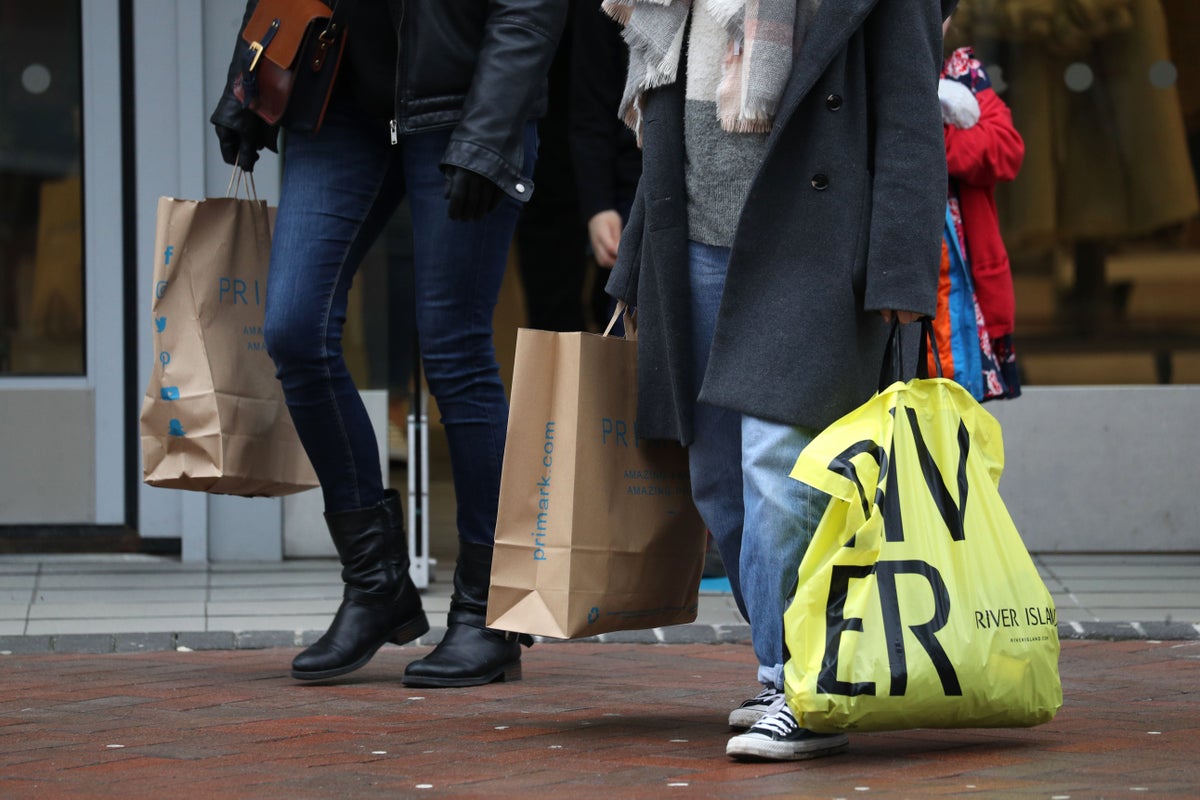
Consumer confidence in the year ahead is continuing to recover despite persistent cost-of-living pressures, a long-running survey suggests.
GfK’s Consumer Confidence Index rose by three points in May to minus 27, the fourth monthly increase in a row from January’s minus 45.
Confidence in personal finances over the coming 12 months saw a “robust” five-point jump to minus 8 – 17 points higher than this time last year.
Expectations for the general economic situation over the next year increased by four points, remaining at a firmly negative minus 30 but 26 points higher than last May.
The major purchase index, an indicator of confidence in buying big ticket items, also rose four points to minus 24, 11 points higher than a year ago.
GfK client strategy director Joe Staton said: “The cost-of-living crisis has been part of our daily financial reality for a long time, with double-digit inflation and record high food prices.
“But despite those pressures, May sees an encouraging three-point uptick in consumer confidence.
“While Brits have little control over the general economy, it’s good to see further improvement in how people view their personal finances in the next 12 months with a robust five-point jump to minus 8.
“This measure most keenly reflects our hopes and fears for the coming year, and it underpins our ability to spend on goods and services that drive our economy.
“Of course, the headline score of minus 27 means we’re still deep in negative territory and a long way from any ‘sunny uplands’. However, the overall trajectory this year is positive and might reflect a stronger underlying financial picture across the UK than many would think.
“But everybody must hold on tight as it could still be a rocky ride out of these tough times.”
Linda Ellett, UK head of consumer markets, retail and leisure for KPMG, said: “Consumer confidence continues to push back against heightened inflation and interest rates, but increases in the most significant of essential household costs, such as mortgage or rent, and also energy, continue to govern how consumers are feeling about their outlook for 2023.
“Essential costs also continue to dictate whether consumers need to take steps to save money elsewhere in their budget. For example, so far this year a third of consumers that KPMG surveyed say they have switched to cheaper retailers, while nearly 40% are buying more value or own-brand produce.
“Certainty about essential costs has and will continue to dictate savings and spending plans for the rest of 2023. One third of consumers that KPMG spoke to with savings say they are using them to help meet their essential costs. But among the remaining two thirds, appetite exists to make major purchases during the rest of this year.”







